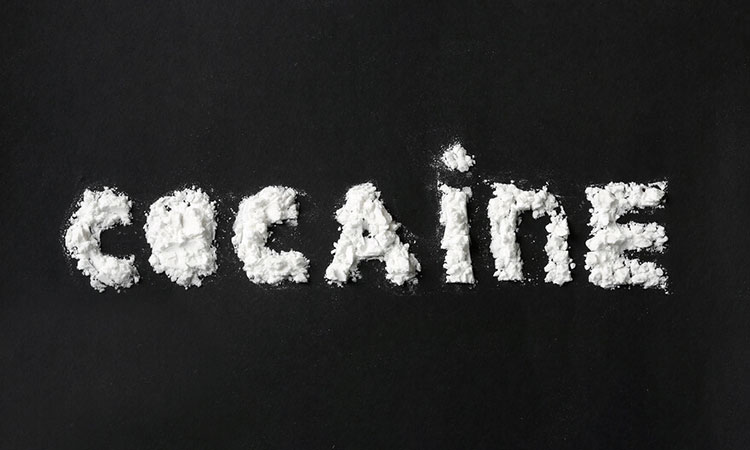
It requires diligence to recognize a cocaine problem in a loved one, and knowing what signs to look for is critical to identifying an addiction. The side effects and signs of cocaine use and abuse will become more evident and severe gradually over time as the person descends further and further into addiction.
Warning Signs of Cocaine Use
The initial signs of cocaine use are often subtle when compared to full-blown addictive behavior. Indeed, the physical and psychological signs of cocaine use become more severe in proportion to the behavioral effects of addiction. Therefore, it’s much easier to defeat a cocaine habit in the early stages, because once a strong addiction sets in, the process of recovery can take months or years.
Behavioral Signs of Cocaine Use
There are a number of signs that may indicate the presence of a substance use disorder involving cocaine, including the following:
- Peculiar or abnormal behavior
- Impulsiveness
- New or worsening financial issues
- Consistent secretiveness or providing suspicious answers to questions
- Leaving early from, being late to, or avoiding gatherings or obligations
- White powdery smudges on clothing, belongings, or nose
Compared to many drugs, cocaine is quite expensive. Therefore, a cocaine habit may require the person to engage in extreme actions and risky behaviors to afford it, including the following:
- Selling drugs
- Taking side jobs
- Selling personal possessions
- Repeatedly asking to borrow money
- Stealing from friends and family
- Taking out loans, or taking funds out of savings account, 401K, or retirement
A cocaine habit often one-tracks the user’s mind into engaging in persistent drug-seeking behavior, producing adverse life-changing consequences. These behaviors should be regarded as red flags, and may also include the following:
- Extreme debt or bankruptcy
- Strained or failed relationships
- Legal trouble or incarceration
- Being suspended or dropped out of school
- Quitting or getting fired from a job
- Not participating in activities once enjoyed
Psychological Symptoms of Cocaine Use
Cocaine use can also cause psychological and emotional distress that requires emergency department visits, hospital stays or psychiatric intervention to address. Some common symptoms related to this include the following:
- Insomnia and hypersomnia
- Increased anxiety and isolation
- Reduced attention span
- Lethargy and fatigue
- Irritability or agitation
- Loss of appetite
- Severe mood swings
- Hyperstimulation
- Hyperactivity
- Euphoria and elevated mood
- Hypervigilance and paranoia
- Hallucinations
Due to the chemical instability caused by cocaine, random and explosive mood shifts are common among users. When a loved one develops a cocaine habit, they may act cold or aloof, nearly unrecognizable from the person they used to be. When this occurs, it often makes it more difficult for loved ones to recognize the nuances in behavior as they transpire, and the more these changes increase, the more urgent the problem becomes.

Physical Symptoms of Cocaine Use
Physical symptoms caused by cocaine use may vary from mild to very severe. Because every person’s body is unique, cocaine doesn’t impact everyone in the same way. Nonetheless, whether these symptoms are mild or severe doesn’t make the cocaine problem any less concerning.
Common physical symptoms associated with cocaine use include the following:
- Dilated pupils
- Excessive sniffling
- Runny or bloody nose
- Hoarseness
- Twitching or shaking
- Dark circles under eyes
- Headaches or migraines
- Stomach aches
- Nausea
- Elevated body temperature
- Accelerated heart rate
- Infertility
Cocaine Withdrawal
Once a person is physiologically dependent on cocaine, withdrawal effects manifest if the dosage is dramatically reduced or discontinued. Withdrawal effects from cocaine may include the following:
- Depression
- Fatigue
- Seizures
- Heart problems
- Intense cravings for cocaine
- Long periods of deep and interrupted sleep
Cocaine is a remarkably powerful substance with side effects that may vary markedly depending on how much of the drug was used, the user’s body chemistry, or other chemicals present in the system in addition to it. Cocaine may also be combined with harmful adulterants that can contribute to overdose or sudden death.
Long-Term Effects of Cocaine Abuse
The longer cocaine abuse continues, the higher the risk of severe adverse effects on the brain’s ability to function and physiological health. Treatment specialists must often battle a myriad of other problems experienced by individuals newly admitted to rehab.
Sometimes, outside assistance from physicians, other specialists, and therapists is needed to treat chronic cocaine users effectively. And, unfortunately, some of the negative consequences produced by cocaine use are permanent.
Long-term health effects may include the following:
- Reproductive complications
- Difficulty swallowing
- Breathing and lung damage
- Chronic, recurrent nosebleeds
- Cardiovascular disease
- Seizures and convulsions
- Damage to septum, nose, and nasal tissues
- Reduced or loss of sense of smell
- Extreme weight loss and malnourishment
- Sexual dysfunction or impotence
- Gastrointestinal problems and bowel deterioration
- Movement disorders, such as Parkinson’s disease
In general, the more a cocaine habit becomes entrenched in a person’s psychology, the more dangerous his or her lifestyle will become. As such, cocaine use may result in additional health risks, including the following:
- Sexually transmitted diseases
- Unplanned pregnancy
- Cocaine exposure in unborn babies
- Blood-borne diseases from sharing dirty needles (HIV and hepatitis B and C)
Every year in the U.S., there are an estimated 750,000 cocaine-exposed pregnancies. Cocaine use throughout pregnancy can lead to spontaneous miscarriage, a complicated delivery, or a number of other adverse health outcomes before and during birth.
Long-term cocaine use is also related to profound psychological distress, such as paranoia or hallucinations. Some research has suggested that cognitive functions such as memory and motor control may be adversely affected by prolonged abuse. Furthermore, cocaine use is strongly linked to heart failure and premature death.

Tolerance and Overdose
Signs of cocaine use can be tricky to spot at first but will eventually become too blatant to ignore. Cocaine tolerance initially arises during the early stages of use and builds over time. Tolerance means that abusers of coke will need higher and higher doses to achieve the desired effect.
Although cocaine can be perilous at any dose, the drug’s hazardous potential increases dramatically at very high doses. The addictive nature of cocaine makes it easy to disregard the excessive amounts one is using to maintain a high. Once the stimulation becomes too great for the body, a life-threatening overdose can occur.
The amount of cocaine needed to overdose fluctuates based on a number of factors, including a person’s unique physiology and other substances that are involved, including prescription or illicit drugs or alcohol. An overdose is considered to be a medical emergency and requires immediate treatment.
Symptoms of a cocaine overdose may include the following:
- Panic
- Delirium
- Delusions
- Hyperthermia
- Respiratory arrest
- Heart failure
- Cerebral hemorrhage
- Convulsions and seizures
- Kidney failure
- Shock
- Stroke
- Coma
If not addressed promptly, the risk of heart failure and death significantly increases. Statistics also show a strong association between cocaine overdoses and toxic interactions with other substances.
In 2015, for example, more than half of known overdoses related to cocaine in the United States also involved opioids. Indeed, more than one-third (37%) of these fatalities involved heroin—combining heroin and cocaine produces a very potent and deadly mixture known as a speedball.
Treatment for Cocaine Addiction
Cocaine addiction is most effectively addressed through admission to a comprehensive addiction treatment program. During this time, the person receives customized, evidence-based treatment that consists of services vital to recovery, such as psychotherapy, individual and family counseling, group support, and aftercare planning.
Recovery from addiction can be a challenging lifelong endeavor, but you don’t have to do it alone. We can help you reclaim your life and begin to experience the wellness and happiness you deserve!